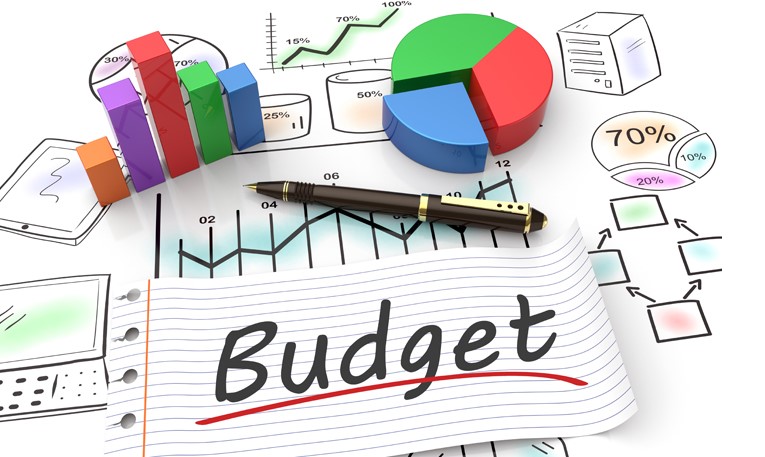Creating a budget can feel like a tedious task, but it doesn’t have to be! Think of it as a way to reflect your values and intentions, not just a list of numbers. When you align your budgeting process with your lifestyle and beliefs, it can become a meaningful tool that enhances your sense of purpose and well-being. This approach allows you to prioritize what truly matters to you, whether it’s saving for a vacation, contributing to a charity, or even securing personal loans online when needed. Let’s explore how you can build a budget that genuinely reflects your lifestyle and values.
Understanding Your Core Values

Before diving into the nitty-gritty of budgeting, take a moment to reflect on your core values. What truly matters to you? Is it family, adventure, health, or maybe education? Understanding your values is the first step toward creating a budget that feels authentic and fulfilling.
To get started, write down your top five values. Then, think about how those values influence your daily life and spending habits. For example, if “travel” is one of your core values, you might want to prioritize saving for trips in your budget. On the other hand, if “health” is important to you, allocating funds for gym memberships or healthy food options would be a good idea.
Visualizing Your Goals
Once you have a clear understanding of your values, it’s time to translate them into actionable goals. Think about both short-term and long-term goals that resonate with your values. Maybe you want to save for a family reunion next year or contribute to a scholarship fund over the next five years.
Visualizing your goals can help you stay motivated and focused. Create a vision board or a digital representation of your goals, including images and quotes that inspire you. This visual reminder will keep you engaged in the budgeting process, making it easier to prioritize spending that aligns with your aspirations.
Tracking Your Current Spending
To build a budget that reflects your lifestyle, you need to know where your money is currently going. Tracking your spending for at least a month can provide valuable insights. You can use apps, spreadsheets, or even good old-fashioned pen and paper to keep tabs on your expenses.
Break your spending into categories: necessities like rent and groceries, discretionary spending like dining out and entertainment, and savings or investments. By categorizing your expenses, you can identify areas where your spending aligns with your values and areas where it may not.
Creating a Values-Based Budget

Now comes the fun part—creating your budget! Start by setting up a basic framework that includes all your income sources and expenses. Then, allocate funds to each category based on your values and goals.
For instance, if travel is a priority, allocate a specific percentage of your income toward a travel fund. If you’re passionate about education, consider setting aside money for courses or books. You can even create separate savings accounts for different goals, making it easier to track progress.
When budgeting, aim for a balance between your needs, wants, and savings. A common rule of thumb is the 50/30/20 rule, which suggests allocating 50% of your income to needs, 30% to wants, and 20% to savings. However, feel free to adjust these percentages based on your values. If travel is a higher priority, you might allocate 40% to needs, 30% to travel, and 30% to savings.
Adjusting as Life Changes
Life is unpredictable, and your budget should reflect that. As your circumstances change, don’t hesitate to revisit and adjust your budget. Major life events like a job change, moving, or even starting a family can impact your financial situation and priorities.
If you find that your current budget isn’t working for you, sit down and reassess. Are there areas where you can cut back? Are there new goals you want to pursue? Remember, your budget isn’t set in stone. It’s a living document that should adapt as you do.
Finding Accountability and Support
Building a budget can be a solo journey, but it doesn’t have to be. Consider sharing your goals and budget with a trusted friend or family member. Having someone to hold you accountable can make a significant difference. They can offer support, celebrate your achievements, and help you stay focused on your values.
You might also consider joining financial groups or forums where people share their budgeting experiences and tips. These communities can provide motivation and encouragement as you work toward your financial goals.
Being Mindful of Impulse Spending
One of the biggest challenges in budgeting is impulse spending. It’s easy to get sidetracked by shiny objects or temporary desires that don’t align with your values. To combat this, practice mindfulness when it comes to spending.
Before making a purchase, ask yourself if it aligns with your values and goals. Take a moment to consider if it’s a need or a want. You can even implement a “cooling-off” period—if you’re tempted to buy something, wait 24 hours before making the purchase. This extra time can help you determine if it’s truly worth the expense.
Celebrating Your Progress
As you work through your budgeting journey, don’t forget to celebrate your successes! Acknowledging your progress can boost your motivation and reinforce the positive changes you’re making. Set milestones for yourself, whether it’s saving a certain amount or reaching a specific goal. When you hit a milestone, treat yourself to something small that aligns with your values—maybe a nice dinner or a day out doing something you love.
Conclusion

Building a budget that reflects your lifestyle and values isn’t just about crunching numbers; it’s about creating a financial plan that empowers you and enhances your well-being. By understanding your core values, tracking your spending, and adjusting as life changes, you can create a budget that feels authentic and fulfilling. Remember, it’s a journey, not a destination. So embrace the process, stay committed to your goals, and enjoy the peace of mind that comes with financial harmony. Happy budgeting!
